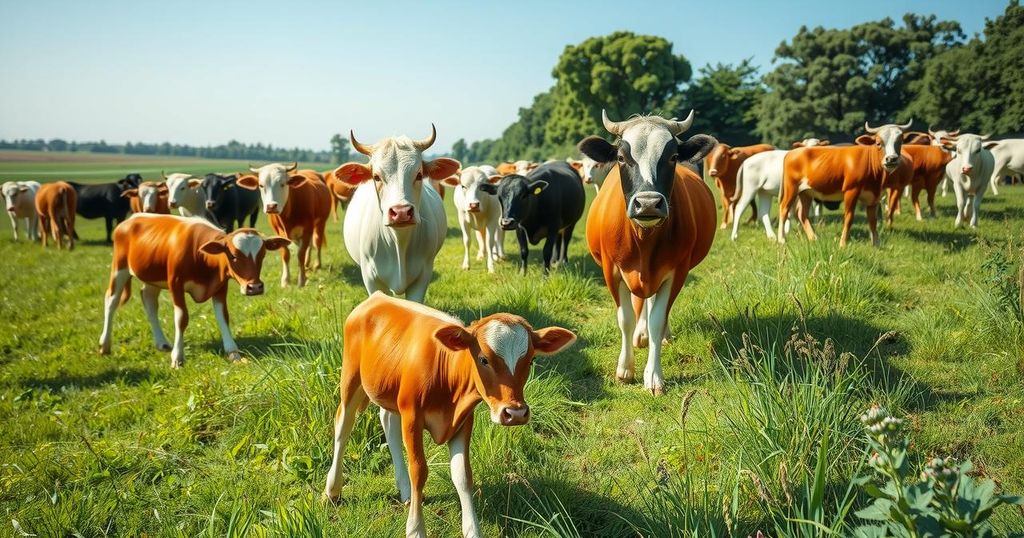Kazakhstan plans to reduce imported feed reliance by collaborating with Hungary’s UBM Group to establish three production plants producing premixes and compound feed, ultimately ensuring local farmers have access to quality feed. Directed by Deputy Prime Minister Serik Zhumangarin, the project aligns with national goals of meeting local food demands through domestic production.
Kazakhstan is taking steps to curtail its dependence on imported feed by collaborating with Hungary’s UBM Group, which intends to establish three production plants in the country. This initiative is projected to yield 48,000 tons of premixes and 300,000 tons of compound feed annually, in addition to creating a laboratory and training center.
The Kazakh government aims to significantly cut down on its current import of over 250,000 tons of compound animal feed annually. Deputy Prime Minister Serik Zhumangarin underscored the importance of providing local livestock farmers with access to high-quality, domestically produced feed, as a critical strategy for reducing meat production costs.
Moreover, Zhumangarin reiterated Kazakhstan’s commitment to fulfilling 90% of its domestic food demand through local production, focusing particularly on essential food items. The new facilities will be located in the Kostanay, Karaganda, and Almaty regions, with preliminary site selection underway.
In Karaganda, a partner and construction site have already been secured, while in Kostanay and Almaty, local collaborators have been identified but site decisions are yet to be finalized. To expedite the project’s initiation, Zhumangarin has directed local governments and the Ministry of Agriculture to ensure land allocation is completed by the end of March, allowing construction to commence by the second quarter.
The overall construction timeline is expected to conclude within two years, marking an important development in Kazakhstan’s agricultural strategy.
Kazakhstan is strategically targeting a reduction in feed imports by collaborating with Hungary’s UBM Group to produce feed locally. This initiative aims to not only meet domestic needs but also lower meat production costs significantly. The establishment of production facilities and training centers reflects a substantial step towards enhancing food security within the country.
Original Source: timesca.com




